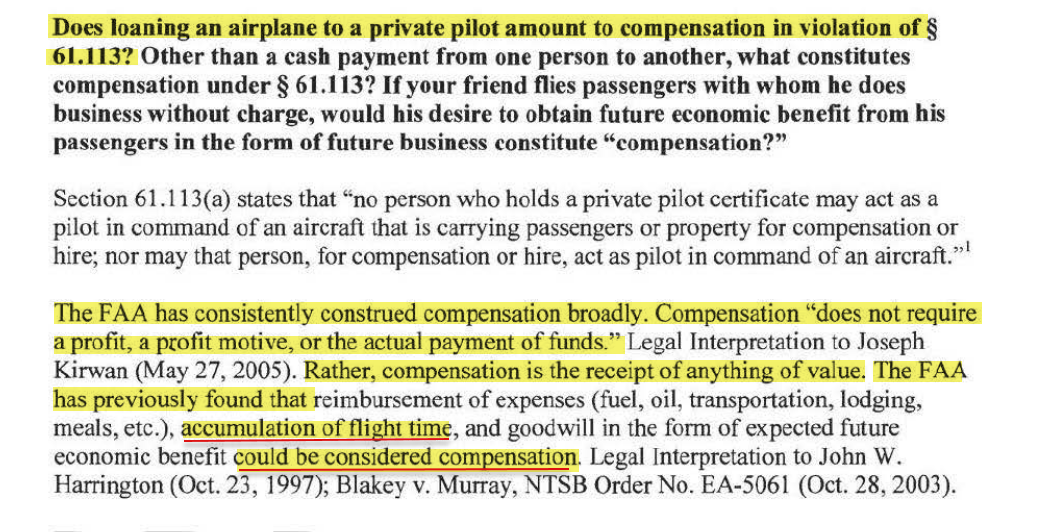Let's say I'm visiting a friend who happens to own an airplane, and I happen to be a private pilot holding a valid FAA PPL, as well as being familiar with the make and model my friend owns. Suppose my friend says "I'll show you around the avionics, and if you want to take her for a ride around the area, feel free. She's topped up on fuel, so you don't have to worry about it". Would it be legal for me to take them up on the offer if:
- I were to fly alone, and not get compensated in any way, but also not bear any expenses related to the flight?
- As above, but the friend also says "oh and by the way, I have a fuel card stashed in the cockpit, you can use it to refuel if you need to"
- I were to take my wife and two friends, who are also visiting, as passengers?
- As above, but again with fuel card
- I were to act as PIC for a volunteer flight transporting sick patients, given that I receive no compensation for the flying, but my friend is furnishing the plane and the fuel onboard. They'd fly it themselves, but their IFR rating is not current and mine is
- As above, but I also refuel the plane using their fuel card
- As above, but the plane is provided by the organisation coordinating the flights, rather than my friend
I understand the basic limitations of the private pilot certificate, and that there's a broad prohibition on receiving any compensation for the carriage of passengers of cargo, including non-monetary compensation such as "building flying time". I am not, however, sufficiently versed in all the relevant interpretations to establish whether the above examples fall under the exemptions carved out for bona-fide common interest or volunteer flights.
Edit to clarify a point alluded to, but not explicitly addressed in one of the answers: my friend is not a business partner of mine, nor do I expect ever to do business with them. The intent of this (hypothetical) situation is that they are letting me fly their plane for fun, just as they could let me take their 700HP Dodge Charger Hellcat for a ride.
Edit 2: to make the unstated assumption explicit, I'm assuming that hours will be logged for those flights. The FAA has made it reasonably clear in the past that if hours are not logged, their compensatory aspect vanishes and thus renders many otherwise prohibited flights legal.

